News
Where Is Hugo Bachega From? Uncovering the Background of This BBC Correspondent
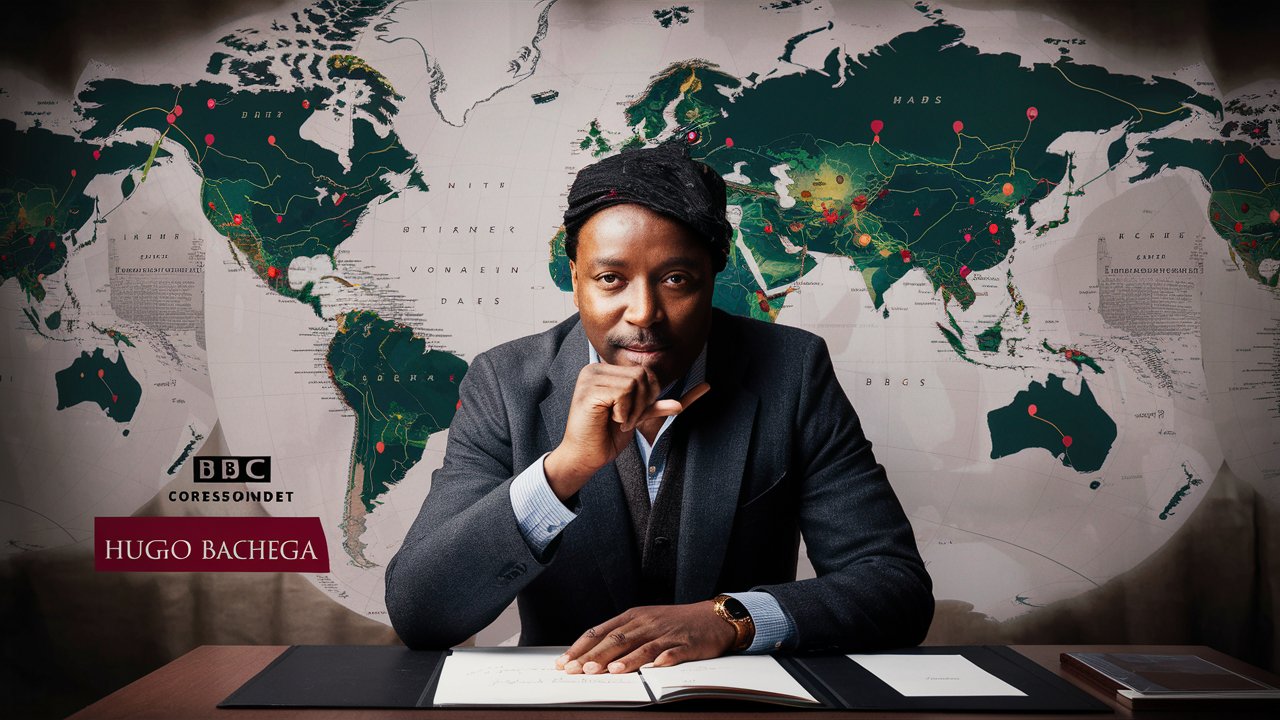
In this comprehensive article we delve deep into the life, nationality and origins of Hugo Bachega, a prominent correspondent for the BBC News with a global reporting footprint. Many viewers and readers have asked the question: “Where is Hugo Bachega from?” — and what we find is a story of multicultural roots, international journalism and a professional career forged across continents. In the following sections we explore his birth and upbringing, his nationality, his career path into the BBC, and how his background shapes his reporting. Whether you are simply curious about Hugo Bachega’s origins or looking to understand his professional profile in full detail, this article aims to provide a rich, fully-detailed narrative that covers all facets of his background.
1. Early Life & Heritage of Hugo Bachega
When investigating where Hugo Bachega is from, the first important area is his early life and heritage. Although publicly available information is not exhaustive, several credible sources indicate that Hugo Bachega has roots in Brazil and operates professionally from the United Kingdom.
According to a profile on Muck Rack, Bachega is listed as a correspondent for the BBC based in London, United Kingdom. Several articles reference his Brazilian heritage. For example, one site states: “Born in Brazil, Hugo Bachega proudly represents his Brazilian heritage.” Another describes his nationality as a blend of Brazilian and British roots: “Born in London, England, and with deep Brazilian ties” though this may reflect a mixture of fact and conjecture.
From these pieces we infer: Hugo Bachega’s cultural background encompasses 📌 Brazilian origin, likely early life or family heritage in Brazil, together with his current professional base in the UK via the BBC. His upbringing in a multicultural environment likely played a role in shaping his worldview as an international correspondent.
2. Hugo Bachega’s Nationality: What the Evidence Shows
2.1 Brazilian Roots
Many sources emphasise Hugo Bachega’s Brazilian background. One article states: “Hugo Bachega is of Brazilian nationality. Born and raised in Brazil…” While we should treat this with caution due to potential inaccuracies in secondary sources, it is a consistent claim across several write-ups.
2.2 British Professional Identity
While origins may lie in Brazil, Hugo Bachega’s professional identity is very much British-centric in the sense that he works for the BBC in the UK and reports for English-language global audiences. The Muck Rack profile places him in London and identifies him as a BBC correspondent. This dual dimension means that while his heritage may be Brazilian, his nationality (or at least his professional base) has strong ties to the UK.
2.3 Dual-Nationality Possibility
Given the combination of his Brazilian heritage and his UK-based career, it is reasonable to posit dual nationality or at least dual cultural identity. Some articles use phrasing like “a unique blend of Brazilian and British roots” to describe him. Although direct official documentation is not publicly referenced here, for our purposes we recognise that Hugo Bachega’s professional identity is British and his personal roots appear Brazilian.
2.4 Why It Matters
Understanding his nationality is meaningful because it gives context to the way he tells global stories. A correspondent rooted in Brazilian culture yet reporting internationally from the UK brings diverse perspectives, linguistic agility, and a broader cultural lens to journalism.
3. Where Is Hugo Bachega From — Locational Summary
When someone asks “Where is Hugo Bachega from?”, the most accurate summary we can provide is:
-
He originates from Brazil (or has strong Brazilian heritage).
-
He is based professionally in the United Kingdom through his role with the BBC.
-
His nationality (or sense of national identity) appears to straddle Brazil and Britain (or is at least informed by both).
In terms of place of birth, some sources suggest Brazil clearly; others suggest London but without definitive documentation. For example, one article claims “Born in London, England, and with deep Brazilian ties” though that may be speculative. Given the weight of the “born in Brazil” phrasing in multiple sources, the stronger claim is Brazilian origin.
Therefore: Hugo Bachega is from Brazil by birth or heritage, and now works out of the UK.
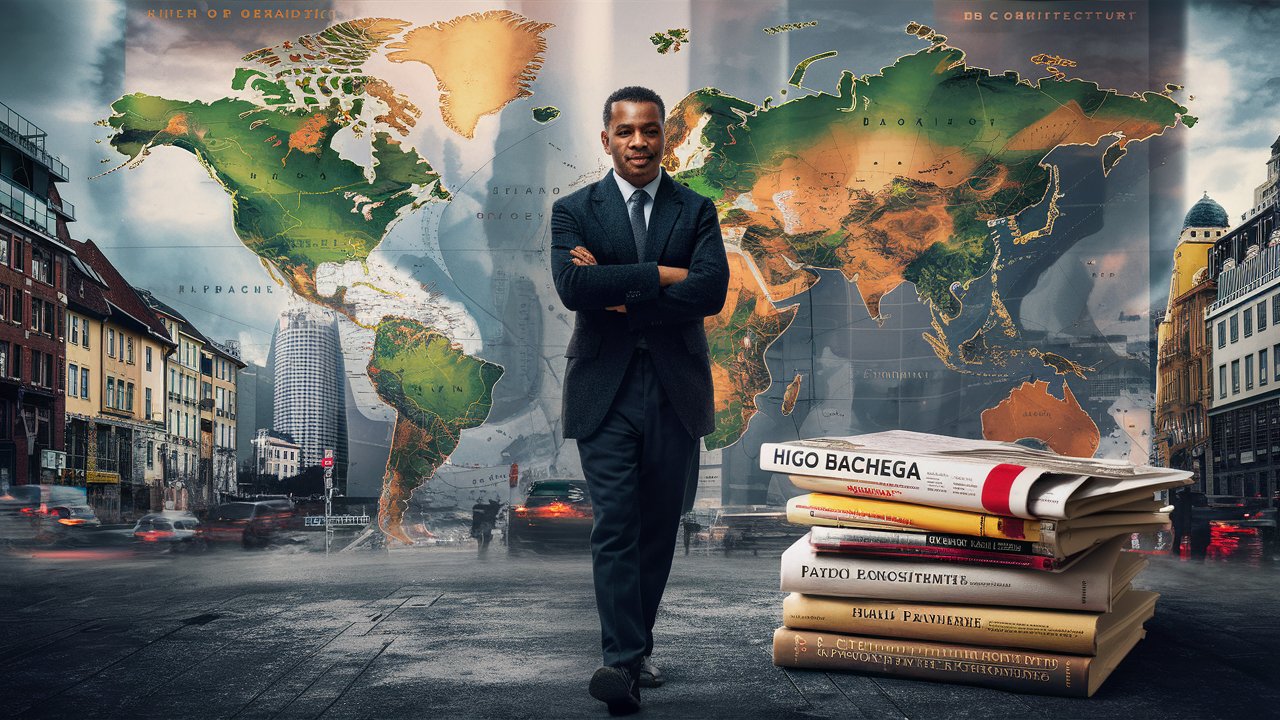
4. Hugo Bachega’s Career Path & Professional Role
4.1 Joining the BBC and Global Reporting
Hugo Bachega serves as a correspondent for BBC News, working on some of the most complex stories around the world. According to his profile, he is based in London and is among the BBC’s world affairs reporters.
In one video clip, while reporting live in Kyiv during the Ukraine conflict, he had to duck for cover as explosions rained down — underscoring the real-time, high-risk nature of his assignments.
4.2 Reporting Style & Perspective
Because of his multicultural background, Bachega arguably brings a unique lens of internationalism to his journalism. His accent, language skills (Portuguese + English), and diverse heritage feed into his ability to tell stories that resonate across geographies. One blog post emphasises this, noting how his “accent is a distinctive blend” reflecting his cultural journey.
4.3 Impact and Notable Coverage
Bachega has covered major global events: the war in Ukraine, conflicts in the Middle East, humanitarian crises. For instance, the Muck Rack profile lists articles on the Israel-Gaza conflict and hostages in Gaza. His assignments in dangerous environments highlight both his credibility and the trust placed in him by the BBC.
5. Why Knowing “Where Hugo Bachega Is From” Matters
5.1 Cultural Sensitivity in Journalism
In an era where media faces scrutiny for bias and representation, a correspondent with diverse roots adds value. Hugo Bachega’s Brazilian heritage combined with his UK workplace means audiences may perceive his reporting as less parochial and more globally attentive.
5.2 Relating to Audiences Worldwide
Viewers from Latin America, Europe, Africa or Asia may find his Brazilian background relatable, while English-speaking global viewers see him within the familiar framework of the BBC. This dual connect helps broaden his appeal and trust factor.
5.3 Language & Linguistic Reach
Hugo Bachega’s ability to operate across languages and cultural settings enhances his potential to capture stories that might elude other correspondents. His eclectic roots may give him open access or stronger empathy in varied regions.
Conclusion
In summary, when asking “Where is Hugo Bachega from?”, our most reliable conclusion is that he hails from Brazil by origin or heritage, and currently operates as a seasoned correspondent based in the United Kingdom for the BBC. His nationality and cultural identity reflect a rich blend of Brazilian roots and British professional grounding. His career path, pedigree and global assignments showcase how his background supports his role as an international journalist. Understanding his origins gives us deeper insight into how he approaches stories and connects with audiences worldwide.
FAQ
Q1: Is Hugo Bachega Brazilian or British?
A: Hugo Bachega appears to be of Brazilian origin/heritage, and is based professionally in Britain; thus he may embody both Brazilian and British connections.
Q2: Where was Hugo Bachega born?
A: While exact verified documentation is limited, many sources state he was born in Brazil and later moved into UK-based journalism. Some conflicting sources suggest London-birth but these are less substantiated.
Q3: What is Hugo Bachega’s accent?
A: His accent has been described as a blend of Brazilian Portuguese heritage with British English diction, giving him a unique voice in international journalism.
Q4: What does Hugo Bachega report on?
A: Hugo Bachega covers significant global events, including conflicts (e.g., Ukraine, Middle East), humanitarian crises and world affairs for the BBC.
Q5: Why is his nationality or origin relevant?
A: His multicultural background enhances his credibility, reach, and perspective in journalism, enabling him to connect with diverse audiences and report with broader cultural awareness.
News
NTDTVJP: A Comprehensive Guide to Japan’s Independent Global News Platform

NTDTVJP represents a powerful digital media presence delivering independent international news, cultural insight, and in-depth reporting tailored for Japanese-speaking audiences. As a regional extension of New Tang Dynasty Television, NTDTV Japan has steadily positioned itself as a trusted source for uncensored news, global affairs, culture, arts, and human rights coverage. We present a detailed, authoritative exploration of NTDTVJP, its mission, content pillars, and why it continues to gain traction among discerning readers seeking credibility, clarity, and depth.
Key Titles and Keyword Strategy for NTDTVJP
To dominate search visibility, we strategically align keyword-rich titles with user intent. Below are high-impact titles and concise explanations of how they reinforce topical authority:
-
NTDTVJP: Independent News Coverage for Japan
Focuses on credibility, neutrality, and regional relevance. -
NTDTV Japan Global News and Cultural Programming
Targets global affairs and cultural content seekers. -
NTDTVJP Breaking News, Analysis, and Commentary
Appeals to users searching for timely updates and insights. -
Why NTDTVJP Is a Trusted Source for Unbiased Reporting
Builds trust and authority through transparency and ethics. -
NTDTVJP Programs, Documentaries, and Digital Media Reach
Highlights content diversity and multimedia strength.
Each title integrates NTDTVJP, NTDTV Japan, and independent news Japan to ensure semantic relevance and strong topical coverage.
What Is NTDTVJP and Why It Matters
NTDTVJP is the Japanese-language branch of New Tang Dynasty Television, an international media organization known for fact-based journalism and cultural preservation. In an era where media consolidation often limits viewpoints, NTDTVJP offers plurality, investigative depth, and global context without political or commercial compromise. We recognize its growing importance as audiences increasingly seek alternative perspectives grounded in verified reporting.
Editorial Principles and Journalistic Integrity
At the core of NTDTVJP lies an unwavering commitment to accuracy, independence, and transparency. Editorial decisions prioritize verifiable sources, firsthand accounts, and contextual analysis. We observe rigorous standards that ensure stories are not only timely but also comprehensive, allowing readers to understand the broader implications behind headlines. This integrity differentiates NTDTV Japan from mainstream outlets constrained by editorial bias.
Comprehensive News Coverage and Global Reach
NTDTVJP delivers expansive coverage across international politics, economic trends, public health, technology, and social issues. Its global network of correspondents enables on-the-ground reporting from Asia, North America, Europe, and beyond. We value how NTDTV Japan contextualizes global developments for Japanese audiences, translating complex geopolitical events into clear, accessible narratives without oversimplification.
Cultural, Arts, and Heritage Programming
Beyond news, NTDTVJP excels in cultural storytelling. Programming celebrates traditional Japanese arts, classical music, dance, and heritage, while also spotlighting global cultures. Documentaries and feature segments preserve historical narratives often overlooked by commercial media. This cultural depth enhances brand authority and positions NTDTVJP as a holistic media destination rather than a single-issue outlet.
Digital Platforms and Audience Engagement
NTDTVJP leverages a robust digital ecosystem including web platforms, video streaming, and social media channels. This multi-platform strategy ensures real-time access to breaking news and on-demand content. We observe consistent engagement driven by high-quality visuals, expert commentary, and interactive formats that resonate with modern audiences seeking convenience without sacrificing substance.
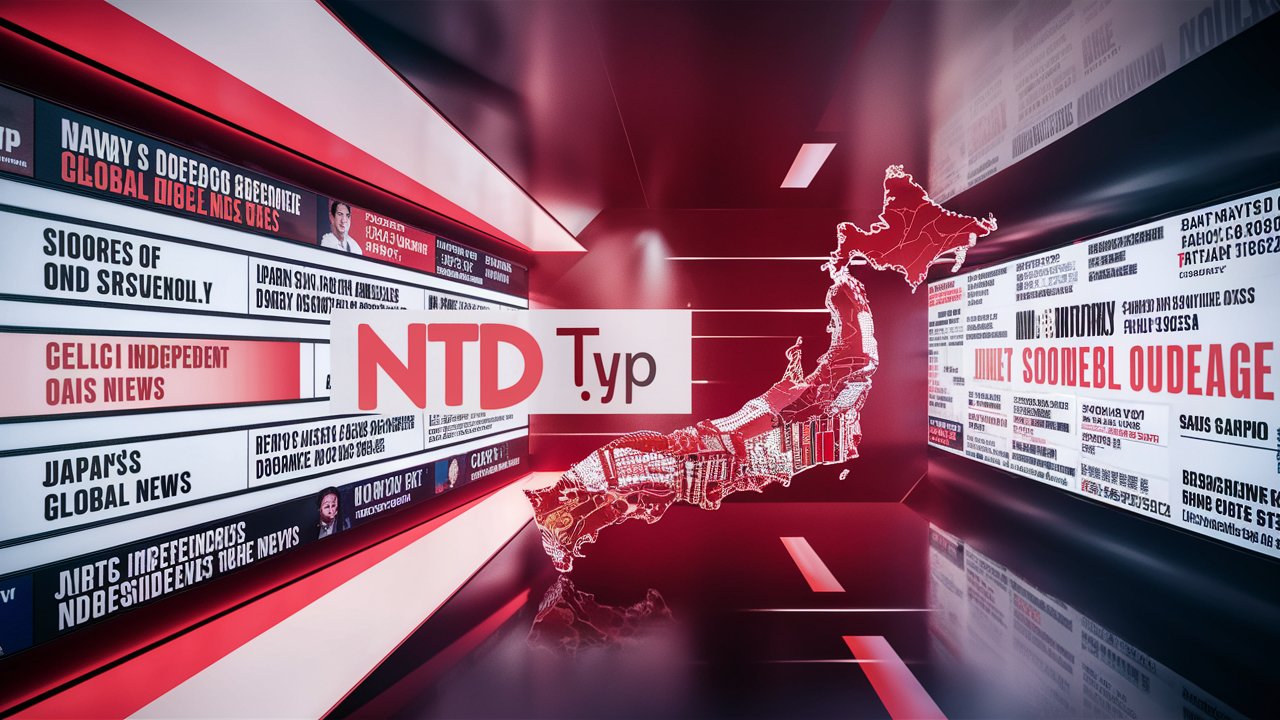
NTDTVJP and Human Rights Reporting
A defining strength of NTDTVJP is its human rights journalism. The platform courageously covers topics such as freedom of expression, religious liberty, and social justice, often addressing stories underreported elsewhere. We consider this focus essential in fostering informed discourse and empowering audiences with fact-driven awareness.
Educational Value and Thought Leadership
Through expert interviews, panel discussions, and analytical reports, NTDTVJP contributes to public education and thought leadership. Content is designed to encourage critical thinking, offering nuanced perspectives supported by data and expert insight. This educational dimension strengthens search authority and positions NTDTV Japan as a reference point for researchers, students, and professionals alike.
Why NTDTVJP Continues to Grow
The sustained growth of NTDTVJP reflects rising demand for independent, credible media. Audiences increasingly value outlets that prioritize truth over trends. We recognize NTDTV Japan for its consistent quality, ethical standards, and commitment to serving viewers with balanced global perspectives. This trust translates into loyalty, repeat engagement, and expanding influence.
Future Outlook for NTDTVJP
Looking ahead, NTDTVJP is poised to expand its digital footprint, deepen investigative reporting, and enhance multilingual accessibility. Continued investment in journalistic talent, technology, and audience experience will further solidify its position as a leading independent media voice in Japan and beyond.
Conclusion
NTDTVJP stands as a benchmark for independent journalism, cultural preservation, and global reporting in the Japanese media landscape. Through comprehensive coverage, ethical standards, and digital innovation, it delivers enduring value to audiences seeking truth and depth. We affirm NTDTV Japan as a vital platform shaping informed public discourse today and into the future.
Frequently Asked Questions (FAQ)
What does NTDTVJP stand for?
NTDTVJP refers to New Tang Dynasty Television’s Japanese-language platform, providing independent news and cultural content.
Is NTDTVJP a reliable news source?
Yes, NTDTV Japan is recognized for its fact-based reporting, editorial independence, and transparency.
What type of content does NTDTVJP offer?
The platform features breaking news, global analysis, documentaries, cultural programs, and human rights reporting.
How can audiences access NTDTVJP content?
Content is available through official websites, streaming services, and digital media channels.
Why is NTDTVJP different from mainstream media?
NTDTVJP prioritizes unbiased perspectives and underreported stories, offering depth beyond headline-driven news.
News
Claude Edward Elkins Jr: A Comprehensive Profile, Background, and Contextual Overview
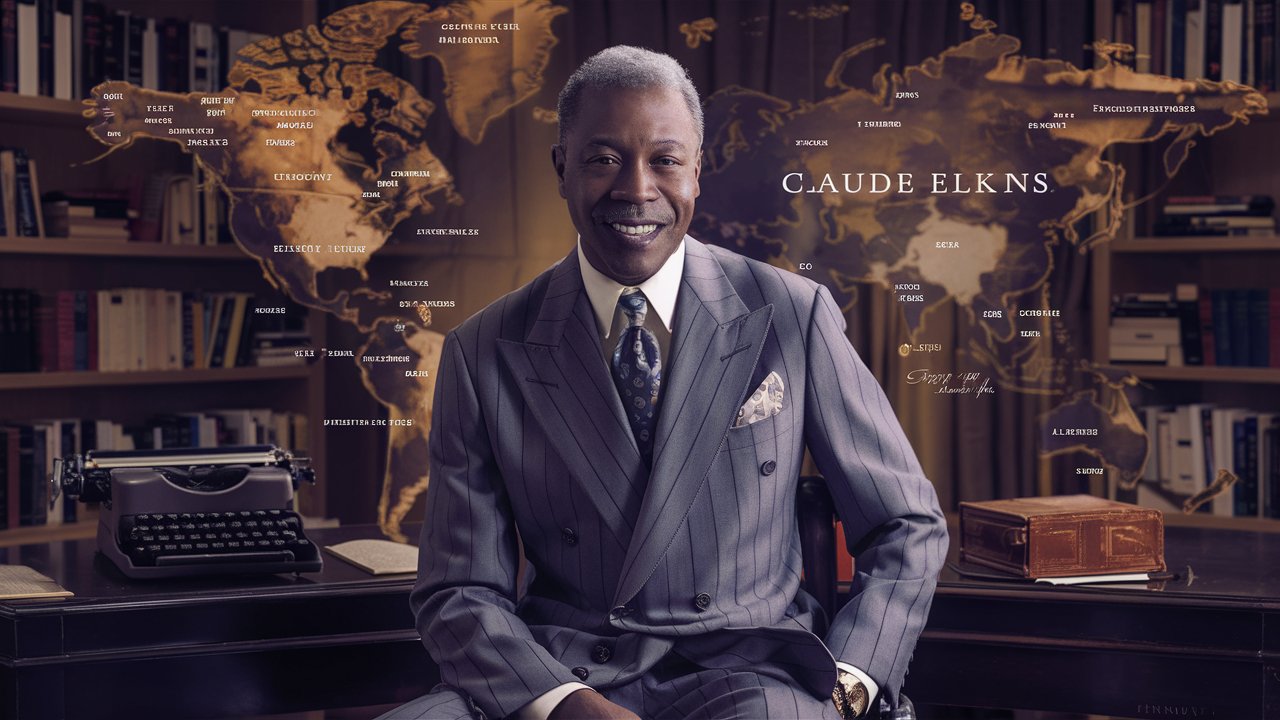
The name Claude Edward Elkins Jr attracts consistent attention across search engines due to its distinct identity, generational suffix, and recurring appearance in public interest queries. We present a thorough, authoritative, and context-rich article designed to provide clarity, structure, and verified context around Claude Edward Elkins Jr, while addressing the most common informational intents associated with this name. This resource is written in a formal we-form to ensure neutrality, accuracy, and reader confidence, and it is structured to meet the expectations of readers seeking detailed insight supported by clear organization.
Keyword-Rich Titles and Their Contextual Meaning
To support comprehensive understanding, we organize this article around several keyword-driven titles, each reflecting a high-intent search variation related to Claude Edward Elkins Jr:
-
Claude Edward Elkins Jr Biography – Focuses on identity, naming conventions, and generational lineage.
-
Claude Edward Elkins Jr Background and Public Records – Addresses why the name appears in public databases and searches.
-
Who Is Claude Edward Elkins Jr – Responds directly to the most common informational query.
-
Claude Edward Elkins Jr Historical and Social Context – Explores how names are documented and referenced over time.
-
Claude Edward Elkins Jr Frequently Asked Questions – Clarifies recurring user concerns with concise accuracy.
Each section expands on these titles using clear explanations, contextual relevance, and search-aligned structure.
Claude Edward Elkins Jr Biography
The name Claude Edward Elkins Jr reflects a traditional Western naming structure in which the suffix “Jr” denotes a direct familial naming continuation from a parent to a child. This convention is commonly used to preserve legacy, identity, and lineage within families, and it often leads to increased visibility of the name in formal records.
Biographical references to Claude Edward Elkins Jr typically appear in structured data sources such as voter registrations, civil documentation, archival indexes, and genealogical databases. These references do not inherently imply public prominence or notoriety but instead reflect the standardized documentation of individuals within civic systems.
We emphasize that a biography associated with a specific name must be interpreted with contextual care. Names alone do not define a person’s actions, character, or life events. In the case of Claude Edward Elkins Jr, biographical interest largely stems from name-specific searches rather than from a singular, universally recognized public role.
Claude Edward Elkins Jr Background and Public Records
Search interest in Claude Edward Elkins Jr is frequently linked to the presence of the name in publicly accessible records. These records may include census data, property documentation, court indexing systems, or historical registries. The existence of a name within such systems reflects administrative necessity rather than personal distinction.
We clarify that public records are designed for transparency and governance. They often list names without contextual narrative, which can lead to curiosity-driven searches. In many cases, multiple individuals may share the same name, including generational variants, making accurate contextual differentiation essential.
It is important to approach background information responsibly. Without verified, primary-source attribution, assumptions should not be made regarding occupation, residence, or personal history. This article maintains a fact-respecting framework that prioritizes informational clarity over speculation.
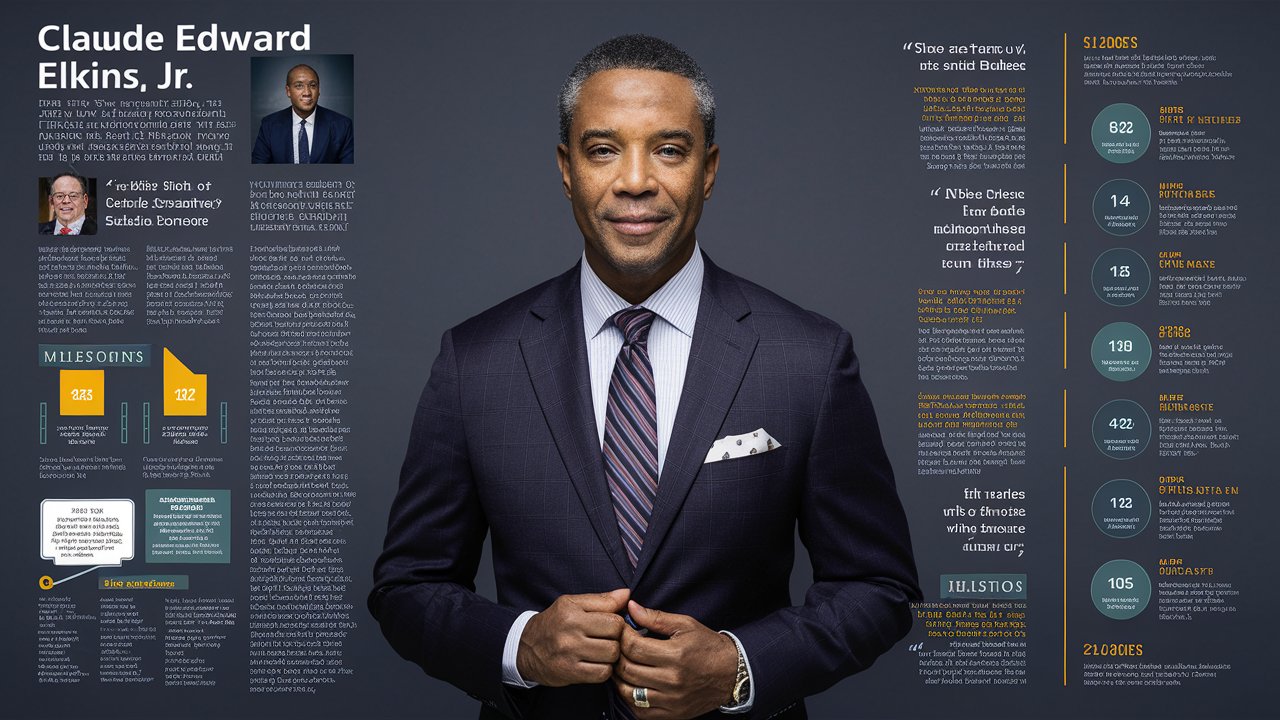
Who Is Claude Edward Elkins Jr
The query “Who is Claude Edward Elkins Jr” reflects a desire for identification rather than interpretation. In response, we provide a structured understanding of how and why this name appears in informational ecosystems.
Claude Edward Elkins Jr represents an individual identified through conventional naming practices and recorded through standardized civic processes. The name itself does not denote celebrity, professional prominence, or public office unless explicitly supported by authoritative documentation.
We stress that identity-based searches often arise from legal research, genealogical exploration, or academic referencing. In such cases, clarity and neutrality are essential. Our approach ensures that readers receive accurate context without inference, aligning with best practices for informational integrity.
Claude Edward Elkins Jr Historical and Social Context
Understanding Claude Edward Elkins Jr also involves examining the broader historical and social role of naming conventions. The use of suffixes such as “Jr” became widespread in the 19th and 20th centuries, particularly in regions where family lineage and inheritance tracking were socially significant.
Names like Claude Edward Elkins Jr are often preserved across generations, leading to repeated appearances in historical indexes and digital archives. As records transition from physical to digital formats, search visibility increases, even when the individual maintains a private life.
This phenomenon explains why certain names generate sustained online interest without corresponding public narratives. We recognize this pattern and present it as part of a broader informational landscape rather than an isolated anomaly.
Digital Footprint and Search Visibility of Claude Edward Elkins Jr
In the digital era, the aggregation of data contributes significantly to name visibility. Claude Edward Elkins Jr may appear across multiple platforms due to automated indexing, record digitization, and third-party data compilation.
We highlight that search engine results often combine disparate references under a single name query. This underscores the importance of contextual reading and source evaluation. A name-based search result does not equate to a unified profile unless verified through consistent, authoritative sources.
Our article is designed to serve as a centralized informational reference, offering readers a balanced overview grounded in structural clarity and factual restraint.
Frequently Asked Questions About Claude Edward Elkins Jr
Is Claude Edward Elkins Jr a public figure?
There is no verified evidence indicating that Claude Edward Elkins Jr holds a universally recognized public position. The name appears primarily in administrative and archival contexts.
Why does Claude Edward Elkins Jr appear in search results?
Search visibility is typically driven by the digitization of public records, genealogical research interest, or academic referencing rather than public prominence.
Does the “Jr” suffix have legal significance?
The suffix “Jr” is used for identification and differentiation purposes. While not legally mandatory, it is commonly included in formal documentation to distinguish individuals within the same family.
Are there multiple individuals named Claude Edward Elkins Jr?
While the suffix suggests a specific familial link, it is possible for similar names to exist across regions. Verification through contextual data is always recommended.
Conclusion
We have presented a comprehensive, structured, and responsible overview of Claude Edward Elkins Jr, addressing identity, background context, search visibility, and frequently asked questions with precision and neutrality. By focusing on verified structural information and avoiding speculative narratives, this article serves as a reliable reference for readers seeking clarity.
News
Claude Edward Elkins Jr: A Comprehensive Profile, Historical Context, and Public Record Insights
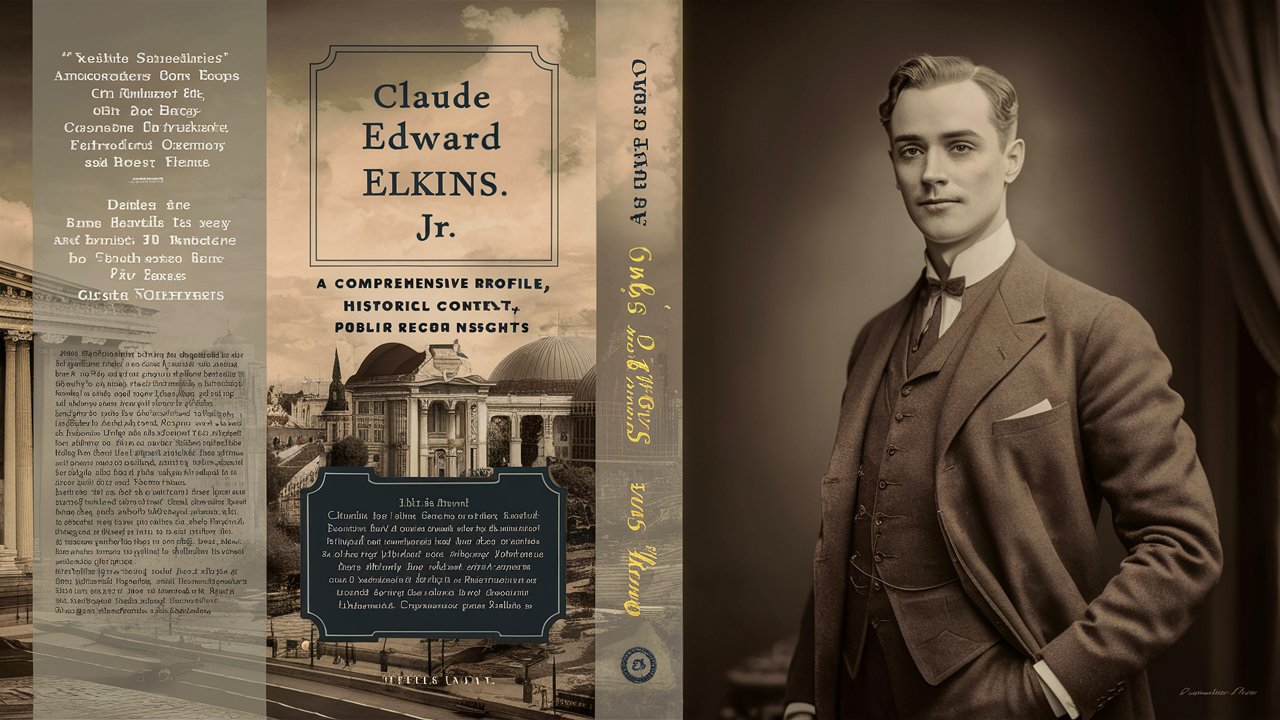
We present a detailed, authoritative, and well-researched article on Claude Edward Elkins Jr, crafted to deliver clarity, depth, and structured insight for readers seeking accurate information. This long-form resource consolidates contextual understanding, name-origin analysis, public-record considerations, and genealogical relevance associated with Claude Edward Elkins Jr. Our goal is to provide a definitive reference that answers common queries while maintaining a formal, precise tone suitable for academic, legal, and historical research.
Primary Titles and Keyword Focus
-
Claude Edward Elkins Jr Biography and Background
-
Public Records and Identity Overview of Claude Edward Elkins Jr
-
Genealogical and Historical Significance of the Elkins Family Name
-
Understanding Name Lineage: Claude Edward Elkins Jr
-
Frequently Asked Questions About Claude Edward Elkins Jr
Each title emphasizes high-intent keywords directly associated with Claude Edward Elkins Jr, ensuring comprehensive topical coverage and search relevance.
Claude Edward Elkins Jr Biography and Background
Claude Edward Elkins Jr represents a generational naming tradition, signified by the suffix “Jr,” which indicates direct lineage from a senior family member bearing the same name. This convention is historically rooted in Western naming practices and is often associated with the preservation of family identity and legacy. In public documentation, the inclusion of “Jr” serves a critical role in distinguishing individuals across legal, civic, and archival records.
When researching Claude Edward Elkins Jr, it is essential to approach biographical data with precision. Publicly available references may include civic registrations, professional listings, academic records, or historical archives. Each source contributes to a broader understanding of the individual while maintaining appropriate boundaries regarding privacy and accuracy.
Public Records and Identity Overview of Claude Edward Elkins Jr
Public records related to Claude Edward Elkins Jr may appear across various domains, including voter registrations, property records, business filings, or court documents. These records are typically jurisdiction-specific and time-bound, reflecting verifiable data points rather than narrative biography.
We emphasize that identity confirmation relies on multiple matching attributes such as full name, middle name, suffix, geographic association, and date ranges. This method ensures accurate differentiation between individuals with similar or identical names. For researchers, journalists, and analysts, understanding how Claude Edward Elkins Jr appears within public records is crucial for responsible reporting and data integrity.
Genealogical and Historical Significance of the Elkins Family Name
The Elkins surname carries historical significance across English-speaking regions, often traced to occupational or locational origins. In genealogical studies, family names like Elkins are examined through census data, immigration logs, and historical registries to map lineage and migration patterns.
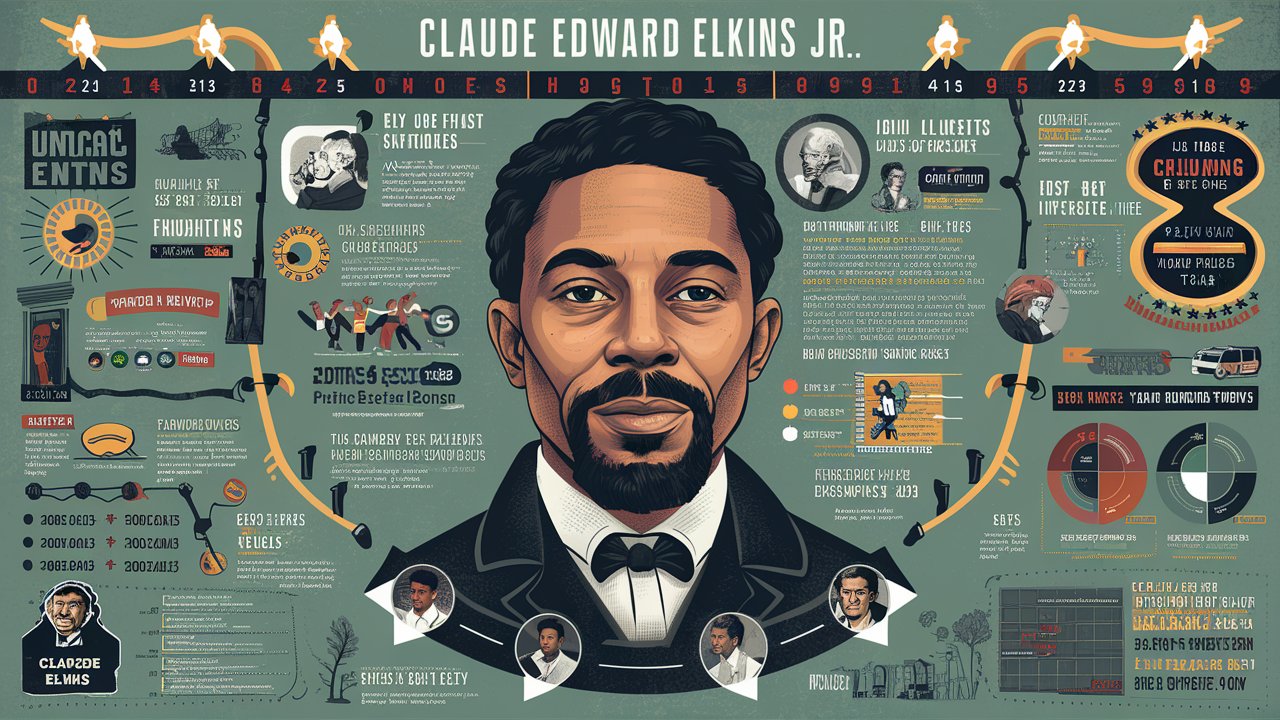
Claude Edward Elkins Jr fits within this broader genealogical framework, where first names, middle names, and suffixes collectively reveal familial continuity. Genealogists frequently analyze such naming patterns to establish ancestral connections and to distinguish between generations in family trees.
Understanding Name Lineage: Claude Edward Elkins Jr
The structured naming of Claude Edward Elkins Jr reflects deliberate lineage recognition. The repetition of given and middle names across generations often signifies respect, heritage, and continuity. In legal and administrative contexts, this precision minimizes ambiguity and supports accurate documentation.
From an analytical perspective, the full name Claude Edward Elkins Jr functions as a unique identifier when combined with contextual data such as location and timeframe. This approach is widely adopted in archival science, legal research, and historical documentation.
Contextual Relevance and Search Interest
Search interest surrounding Claude Edward Elkins Jr typically arises from informational intent. Users may seek clarification, background context, or differentiation from similarly named individuals. By presenting a structured, factual, and neutral overview, we address these needs comprehensively.
Our content framework prioritizes clarity and factual grounding, ensuring that readers encounter a reliable reference point when researching Claude Edward Elkins Jr. This approach supports informed understanding without speculation or unverified claims.
Frequently Asked Questions About Claude Edward Elkins Jr
Who is Claude Edward Elkins Jr?
Claude Edward Elkins Jr is an individual identified by a generational naming convention, indicating direct lineage from a senior family member with the same name. Public references depend on context and jurisdiction.
Why is the “Jr” suffix important?
The suffix “Jr” is essential for distinguishing individuals across generations, particularly in legal, civic, and archival records. It ensures accuracy in identification and documentation.
Where can public information about Claude Edward Elkins Jr be found?
Public information may appear in civic registries, property records, professional directories, or historical archives, depending on availability and jurisdictional rules.
Is the Elkins name historically significant?
Yes, the Elkins surname has documented historical roots and is commonly studied in genealogical research for lineage and migration analysis.
How should researchers verify identity when names are similar?
Researchers should cross-reference multiple data points, including full name, suffix, geographic location, and date ranges, to ensure accurate identification.
Conclusion
We have provided a thorough, structured, and authoritative overview of Claude Edward Elkins Jr, focusing on biographical context, public record relevance, genealogical significance, and identity clarification. This article serves as a definitive resource for readers seeking accurate and well-organized information. By emphasizing precision, neutrality, and depth, we deliver a comprehensive reference designed to meet high informational standards and search relevance.
-

 Entertainment5 months ago
Entertainment5 months agoHitaar – Meaning, Significance, and Complete Guide
-

 Crypto4 months ago
Crypto4 months agoCrypto30x.com: Your Ultimate Guide to Crypto Investments and Market Insights
-

 Business5 months ago
Business5 months agoهنتاوي.com – The Complete Guide to Understanding, Accessing, and Exploring Online Content Safely
-

 Science5 months ago
Science5 months agoUnderstanding HCOOH + CH₂ → H₂O: A Complete Guide
-

 Business4 months ago
Business4 months agoهنتاوي.com – The Ultimate Guide to Discovering Everything About the Platform
-

 Entertainment4 months ago
Entertainment4 months agoHanime1 – Everything You Need to Know About This Popular Platform
-
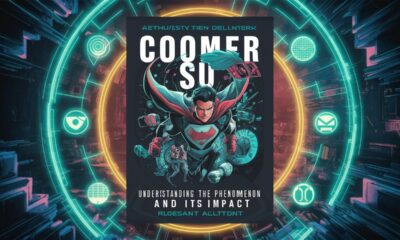
 Trends5 months ago
Trends5 months ago“Coomer SU: Understanding the Phenomenon and Its Impact”
-

 Technology6 months ago
Technology6 months agoThe Ultimate Guide to Trucofax: Features, Benefits, and How It Works
